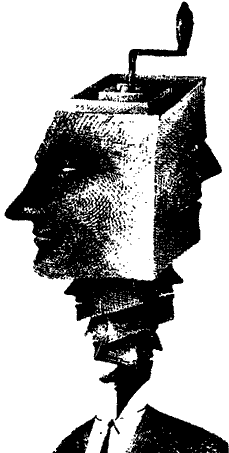 Each time Prime Minister Sher Bahadur Deuba and Nepali Congress president Girija Prasad Koirala pause to lighten their larynxes, their designated spokesmen, Jaya Prakash Prasad Gupta and Arjun Narsingh KC, step in to provide enough firepower to maintain the momentum of the war of words. It was the spokesman of the main opposition party, however, who had the most heart-warming thing to say about the current political crisis. The UML was always in favour of mid-term polls, Pradeep Nepal said, but couldn't demand one because of the burden it would put on the country and people.
Each time Prime Minister Sher Bahadur Deuba and Nepali Congress president Girija Prasad Koirala pause to lighten their larynxes, their designated spokesmen, Jaya Prakash Prasad Gupta and Arjun Narsingh KC, step in to provide enough firepower to maintain the momentum of the war of words. It was the spokesman of the main opposition party, however, who had the most heart-warming thing to say about the current political crisis. The UML was always in favour of mid-term polls, Pradeep Nepal said, but couldn't demand one because of the burden it would put on the country and people. Those distressed by the UML's growing irrelevance to oppositional politics are indeed delighted by the comrades' abiding respect for the people's will. You have to study the context to grasp the real significance of their stance. In the post-Deuba council of ministers being worked out under Koirala's broader democratic alliance, the job of deputy prime minister-complete with the home portfolio-was to have gone to the UML. Having been in power during two of the last three elections, the UML was looking forward to the benefits of incumbency ahead of the fourth. (Remember: reassigning top administration and police officials is the second important pre-election task, after the designation of polling centres, and comes under the home minister.) With Deuba's pre-emptive strike, the UML lost the perks, privileges and prestige that comes with being the second largest party in parliament. Although they were entitled to raising the loudest voice against Deuba, UML leaders chose to be even-handed. Sure the prime minister had blundered badly in dissolving the lower house on the eve of the budget session without informing his finance minister. But wasn't the ruling party being a little too pushy?
While Koirala was seeing conspiracies of all colours and Deuba was telling us how long he was behind bars fighting for our freedoms, UML general secretary Madhav Kumar Nepal cautioned Nepalis to think with cooler minds. A country desensitised by a decade of distrust shouldn't pay attention to another plot-against-democracy story without sufficient corroborating evidence. The UML's self-assurance stands in sharp contrast to its street-fighting and desk-banging trademark. And this has raised new questions. How could a group of rational people be so certain about the inevitability of elections before the Supreme Court ruled on the lawsuit challenging Deuba's late-night feat? Moreover, how could opposition leaders be so sure that the planetary positions on 13 November would be propitious to a free and fair assessment of the people's will?
It's easy to see how a newly reunified UML saw a clear advantage in the mid-term poll and jumped for it. But there's more to the comrades' stance than meets the eye. Having burnt their fingers relying so much on precedent when prime minister Man Mohan Adhikary's decision to dissolve the house was taken to court in 1995, UML luminaries know they have to plan for every contingency. To those who wonder how a government that was forced to put off the local elections could hold the parliamentary polls on schedule, the comrades point to that basic civic duty: trust your leader. (I personally resent the comparison. The government could afford to postpone the local elections because it didn't endanger the constitution.) If their official doctrine of atheism hadn't stood in the way, UML leaders would be telling us wonderful stories about the magnificent power of belief.
UML leaders know they wouldn't be preparing for elections today if the Nepali Congress had heeded Koirala's one-man-two-posts counsel. That's why they are closely observing every act in the ruling party. What does the Kangresi patriarch have up his sleeves now? Sure, Koirala's visit to China was planned before the latest crisis. But that doesn't obscure a crucial fact. For the first time since Dr KI Singh trudged up north after the Rakshya Dal uprising in January 1952 has a politician in the middle of a political storm taken a trans-Himalayan trip.
Every time someone christens a modern-day Tulsi Giri in the Nepali Congress, the people tend to turn left and look for a Rayamajhi. That makes our comrades uneasy, especially since our original Dr Keshar Jung became the first head of a constitutional body to have come out in full support of Deuba's determination.


